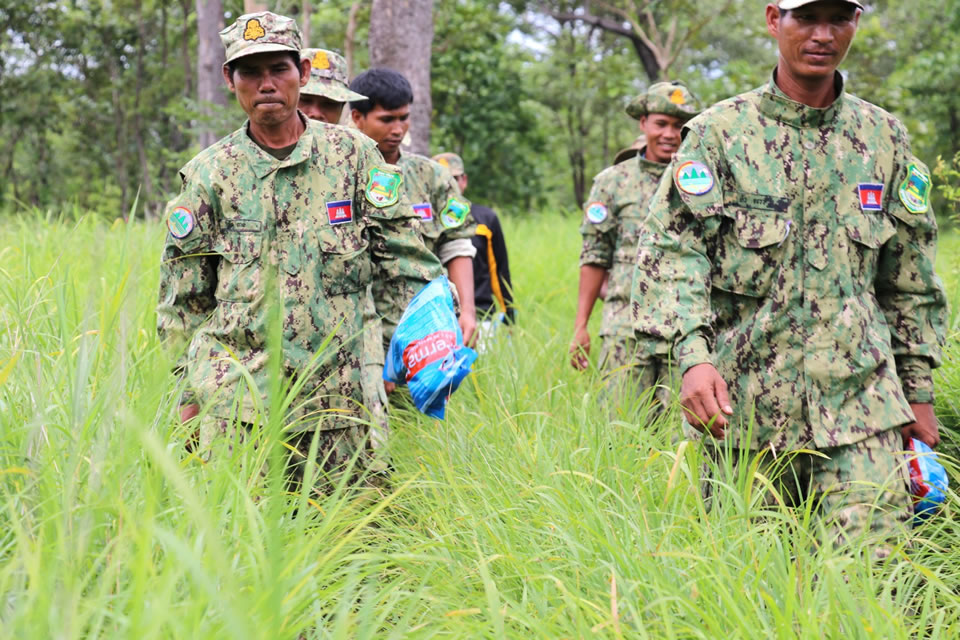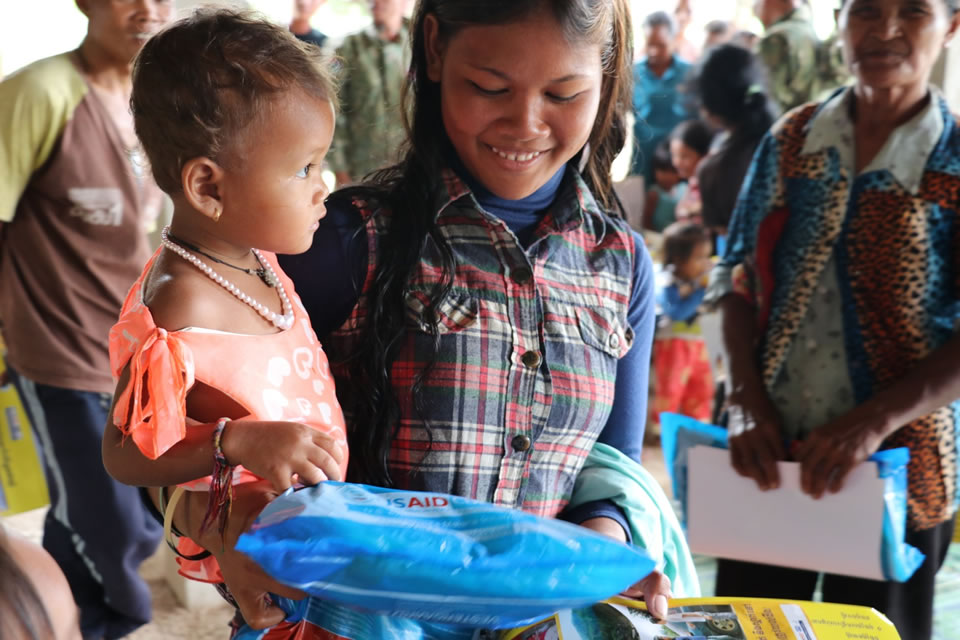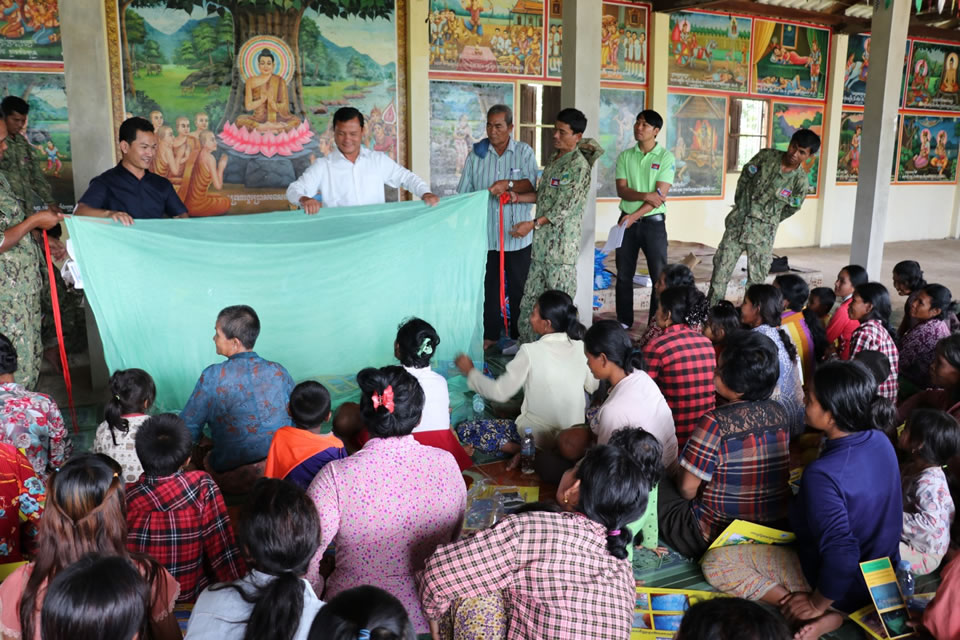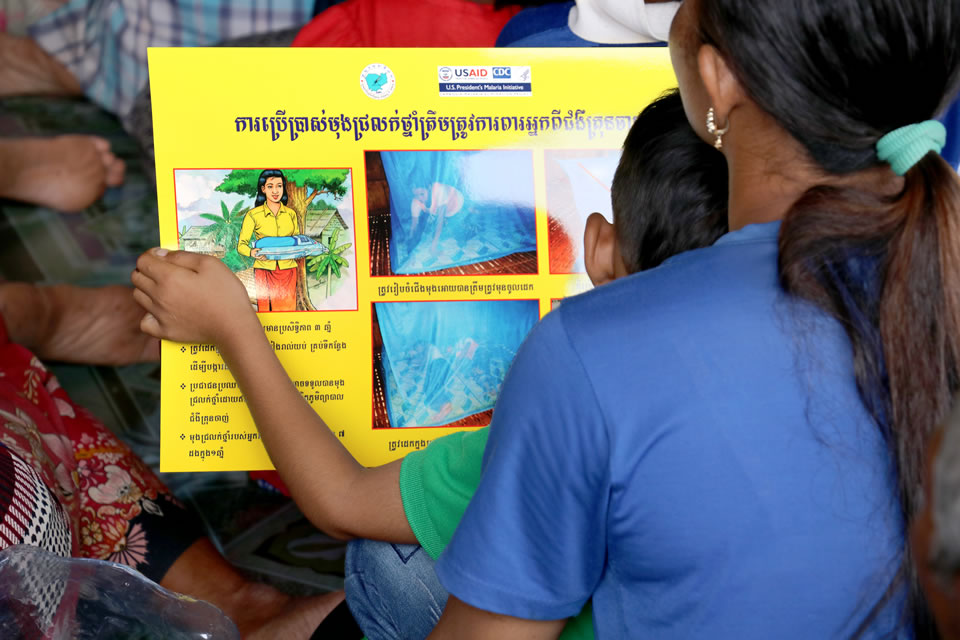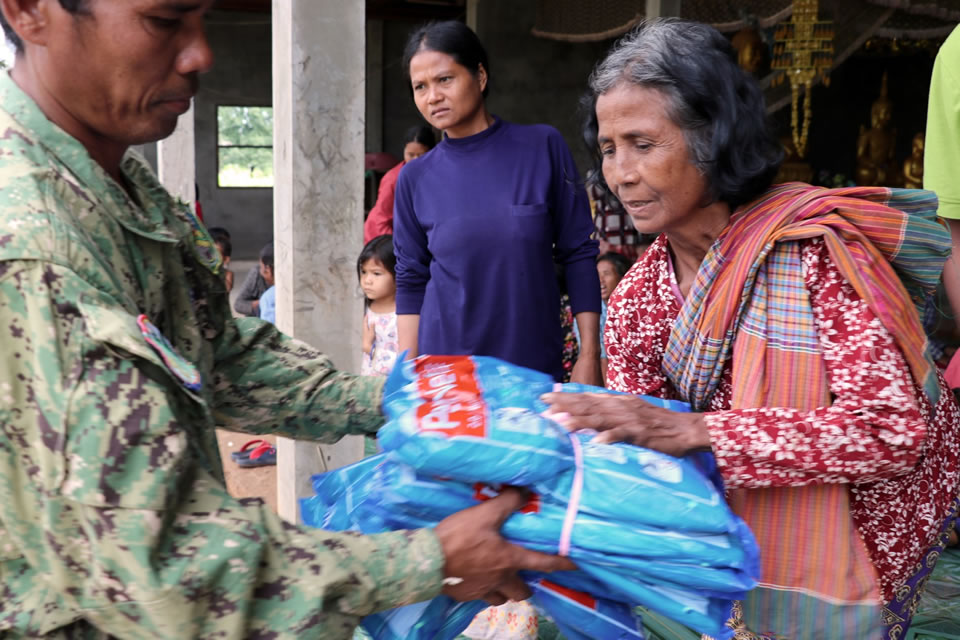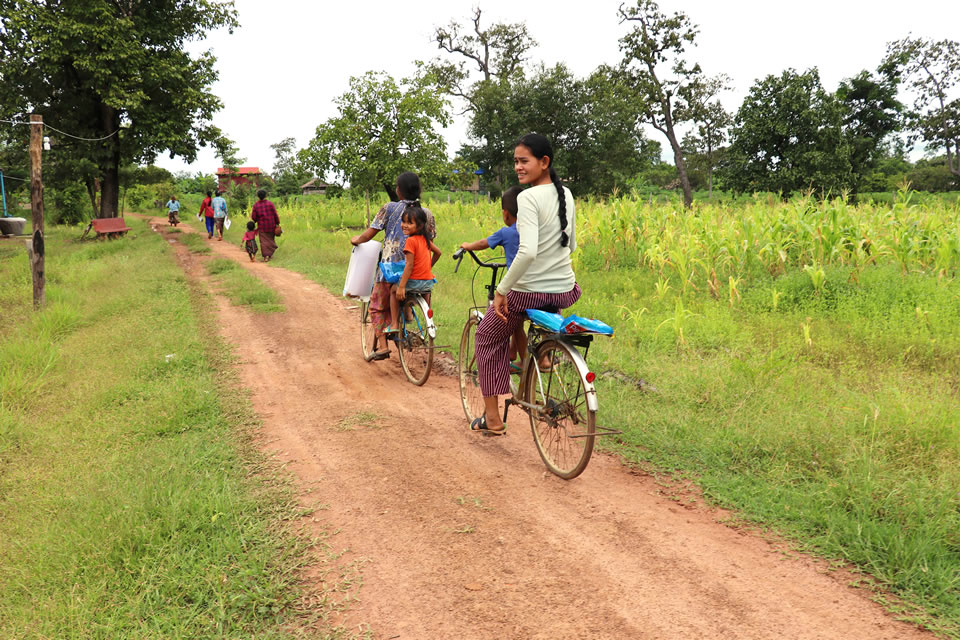Cambodia has made great progress in controlling malaria over the last decade. However, elimination of malaria will require addressing malaria prevention in the forests and protected areas. Cambodia’s national forests are often home to people who earn their livelihoods from the forest and who are transiting from urban areas and Cambodia’s international borders.
People who live in forests and move frequently are at high risk for contracting malaria and are also difficult to reach through malaria control programs. Living “off the grid,” they avoid authorities who might otherwise be their best hope for medical care. One specific group they tend to avoid is forest rangers from Cambodia’s Ministry of Environment, whose job is to protect the forests from poachers and others who live off the forest’s resources.
However, that may soon change.
Under an innovative partnership between Cambodia’s Ministry of Health and Ministry of Environment, forest rangers are taking on an expanded role: delivering long-lasting insecticide-treated hammock nets (LLIHNs) to communities living in environmentally protected areas in 20 priority provinces.
With the support of the U.S. President’s Malaria Initiative (PMI), the USAID Global Health Supply Chain-Procurement and Supply Management (GHSC–PSM) project is helping establish a new supply chain to reach forest-dwelling mobile populations with anti-malaria commodities, including insecticide-treated nets. In addition to procuring and delivering 30,000 LLIHNs and information leaflets to the forest rangers, the project trained forest rangers in distribution methods and educating recipients in LLIHN use.
More than 1,100 forest rangers participated in this activity and so far they have distributed around 12,000 nets to forest going communities in 14 provinces.
With their expanded role as delivery agents of a potentially life-saving commodity, the forest rangers have an opportunity to replace suspicion and fear with trust. In addition to helping protect endangered plants and wildlife, the rangers will help reduce the number of malaria infections and deaths.
“We didn’t know what to do if we have malaria. Now we have the nets to protect ourselves and our children.” Mrs. Murphy, LLIHN recipient

